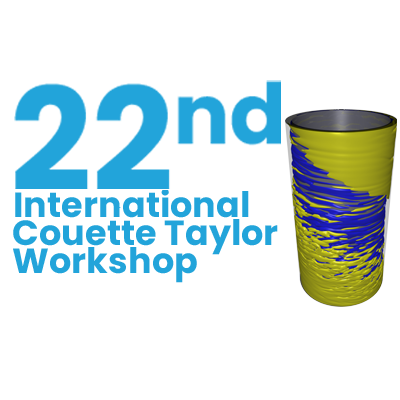
Rotating spherical Shell Convection under the Influence of an imposed differential Rotation
Please login to view abstract download link
We investigate numerically bifurcations of convection phenomena in a rotating spherical shell heated by imposing a constant temperature difference across the spherical gap and driven by a radially directed gravity force. In addition to a global rotation of the fluid shell a supplementary differential rotation between both spheres is considered to study its impact on the convection pattern. This setup serves as an appropriate model of convection phenomena in geophysical and astrophysical applications as in the outer core of planets or in the stellar convection zones. Beside simulations, path-following techniques are applied in order to compute the solution branches and their bifurcations. At low temperature an axially symmetric basic flow is generated which resembles that of the spherical Couette flow. Increasing the Rayleigh number successive symmetry breaking Hopf bifurcations generate firstly rotating waves (RWs) and secondly modulated rotating waves (MRWs) with a dominant azimuthal mode number m=3 . By further increase of the Rayleigh number a new stable RW branch with no symmetry, m=1, appears in a saddle node bifurcation. The stable m=3 MRWs and the arising stable m=1 RWs are coexisting along a certain interval of the Rayleigh number creating a region of bistability. However finally the new non-symmetric m=1 solutions survive as the only stable branch which also maximises the heat transfer quantified by the Nusselt number. A more accurate study demonstrates that this scenario is the result of a homoclinic bifurcation.

